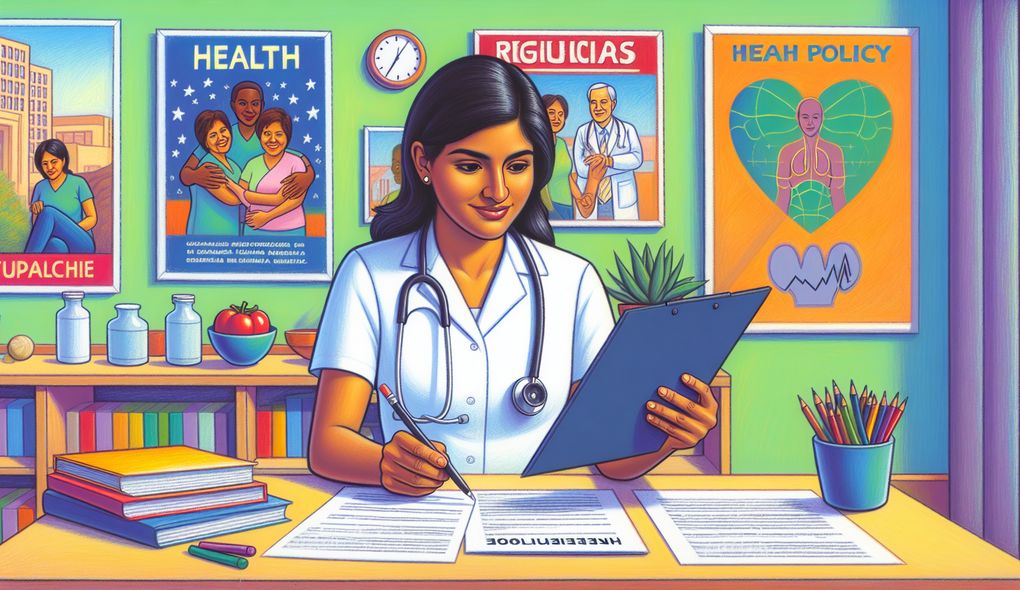How do you approach stakeholder engagement in the policy development process?
JUNIOR LEVEL

Sample answer to the question:
When it comes to stakeholder engagement in the policy development process, I believe in taking a collaborative and inclusive approach. I understand the importance of involving all relevant stakeholders in policymaking to ensure that their perspectives are heard and their needs are addressed. In my previous role, I regularly organized meetings with key stakeholders, such as healthcare providers, administrators, and patient advocacy groups, to gather their input and feedback. I also made sure to communicate policy updates and changes to them in a timely manner. By fostering open and transparent communication, I was able to build strong relationships with stakeholders and create a sense of ownership and buy-in for the policies we developed.
Here is a more solid answer:
In approaching stakeholder engagement in the policy development process, I believe in a multi-faceted approach that involves active listening, effective communication, and collaboration. Firstly, I ensure that I identify all relevant stakeholders, including healthcare providers, policymakers, patient advocacy groups, and community organizations. I proactively seek their input and perspectives to understand their needs and concerns. By conducting focus groups, surveys, and one-on-one meetings, I create a platform for stakeholders to share their insights and experiences. Secondly, I maintain an open line of communication throughout the policy development process. This includes regular updates, progress reports, and opportunities for feedback. I also ensure that stakeholders are aware of any policy changes, implications, and next steps. Lastly, I emphasize collaboration by involving stakeholders in decision-making processes. This can include working groups, task forces, and joint planning sessions. By empowering stakeholders to contribute to the policy development process, I foster a sense of ownership and increase the likelihood of successful implementation.
Why is this a more solid answer?
The solid answer provides more specific details and examples to support the approach to stakeholder engagement in the policy development process. It addresses the evaluation areas of stakeholder engagement and the policy development process by mentioning specific actions like active listening, effective communication, and collaboration. However, it could further improve by including more detailed examples or experiences related to previous policy development projects.
An example of a exceptional answer:
When it comes to stakeholder engagement in the policy development process, my approach is rooted in inclusivity, transparency, and collaboration. I understand that policy decisions directly impact the stakeholders involved, and their expertise and perspectives are invaluable in shaping successful policies. To engage stakeholders effectively, I employ various strategies. Firstly, I conduct thorough stakeholder analysis to identify all relevant parties and understand their unique needs and interests. This analysis helps me to tailor my approach and communication style to suit their preferences. Secondly, I proactively reach out to stakeholders and create opportunities for meaningful engagement. This includes organizing focus groups, forums, and workshops where stakeholders can voice their opinions, ask questions, and contribute to the policy development process. I also use technology platforms, such as online surveys and virtual town halls, to ensure inclusivity and accessibility. Moreover, I prioritize clear and transparent communication by providing regular updates, sharing information about the decision-making process, and soliciting feedback. Lastly, I foster collaboration by creating cross-functional teams that include stakeholders, policymakers, and subject matter experts. By working together, we can leverage collective expertise, brainstorm innovative ideas, and ensure that policies are well-informed and evidence-based. This collaborative approach not only increases the likelihood of successful policy implementation but also strengthens relationships and builds trust with stakeholders.
Why is this an exceptional answer?
The exceptional answer provides a comprehensive and detailed approach to stakeholder engagement in the policy development process. It demonstrates a deep understanding of the importance of inclusivity, transparency, and collaboration. The answer addresses the evaluation areas of stakeholder engagement and the policy development process by providing specific strategies such as stakeholder analysis, proactive outreach, clear communication, and fostering collaboration. It also emphasizes the importance of building trust and relationships with stakeholders. Overall, the exceptional answer showcases a strong ability to effectively engage stakeholders and create policies that address their needs and interests.
How to prepare for this question:
- Research and familiarize yourself with the policy development process, including the different stages and key stakeholders involved.
- Reflect on past experiences where you have engaged stakeholders in a collaborative decision-making process. What strategies did you use? What was the outcome?
- Develop a framework or checklist for stakeholder engagement to ensure that you cover all key aspects, such as stakeholder analysis, communication, and collaboration.
- Practice active listening and effective communication skills, as these are essential in engaging stakeholders and building strong relationships.
- Stay updated on current healthcare issues, trends, and policies to demonstrate your knowledge and understanding during the interview.
What are interviewers evaluating with this question?
- Stakeholder engagement
- Policy development process

